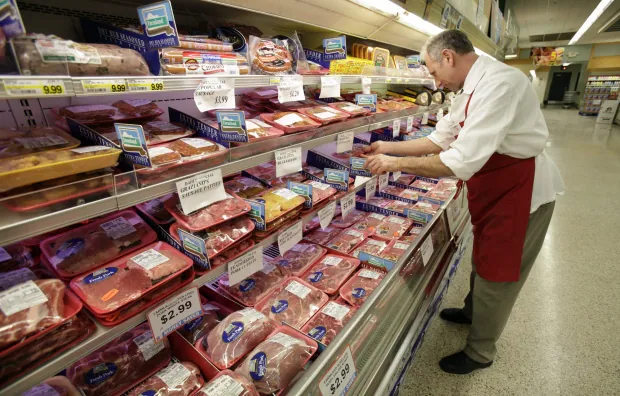Canada’s Inflation Rate Accelerates in July, Raising Concerns of Further Rate Hikes
Canada’s inflation rate accelerated more than expected in July, reaching 3.3%, according to data released by Statistics Canada. This surge in Canada’s inflation rate has raised concerns among policymakers and increased the likelihood of further interest rate hikes by the Bank of Canada.
Inflation Rate Exceeds Expectations
Analysts polled by Reuters had forecast that Canada’s inflation rate would rise to 3.0% from the 27-month low of 2.8% recorded in June.
However, the consumer price index was up 0.6% on a month-over-month basis. Also higher than a forecast of a 0.3% gain.

The average of two of the Bank of Canada’s core measures of underlying inflation. CPI-median and CPI-trim, came in at 3.65% compared with 3.70% in June.
The acceleration of Canada’s inflation rate has prompted concerns among economists and policymakers.
Factors Contributing to the Rise in Canada’s Inflation Rate
Statscan attributed the rise in headline inflation mainly to a base-year effect in gasoline prices. As a large monthly decline in July 2022 was no longer affecting the 12-month movement.

Grocery prices rose 8.5% in July, the slowest pace in more than a year. Mainly due to prices for fresh fruit and, to a lesser extent, bakery products.
Excluding food and energy, prices rose 3.4% compared with a 3.5% rise in June. Services prices rose 4.3% annually in July, while the price of goods increased 2.3%. These factors have contributed to the acceleration of Canada’s inflation rate.
Impact on Interest Rates
The stronger-than-expected price data has raised the prospect of another interest rate hike by the Bank of Canada.
Money markets increased bets for a quarter-percentage-point rate hike in September, with a 35% probability immediately after the release of the inflation data, up from 22% beforehand. And then settled back to a 31% chance.

The bank hiked its benchmark overnight rate to a 22-year-high of 5.0% in July after inflation hit a four-decade high of 8.1%.
It was the 10th increase since March of last year. The acceleration of Canada’s inflation rate has prompted concerns of further rate hikes.
Canada’s Inflation Rate Reactions and Outlook
Not all economists thought the stronger-than-expected price data would tip the scales toward a hike as soon as its next meeting in September.
The Bank of Canada projected in July that inflation would hover around 3% for about a year. Before creeping down to its 2% target by the middle of 2025.

“We see it as close to a 50-50 proposition whether they hike or not. Although we tend to lean towards a hold given the softening job market,” said Jules Boudreau, a senior economist at Mackenzie Investments.
Canada’s economy unexpectedly shed a net 6,400 jobs in July, and the jobless rate ticked up to 5.5%, Statscan said earlier this month.
The acceleration of Canada’s inflation rate, coupled with the softening job market, has raised concerns among economists and policymakers.
Implications for the Canadian Economy
The acceleration of Canada’s inflation rate could have significant implications for the Canadian economy.
Rising inflation can erode purchasing power, leading to decreased consumer spending. Additionally, higher inflation can result in increased borrowing costs. Making it more expensive for businesses and consumers to take out loans.
This could potentially slow down economic growth and lead to a decrease in investment and consumer spending.
The Bank of Canada has a mandate to keep inflation within a target range of 1% to 3%. If inflation continues to rise and exceeds this target range, the central bank may be forced to take more aggressive measures to curb inflation, such as implementing further interest rate hikes.
However, raising interest rates can also have negative effects on the economy, such as slowing down economic growth and increasing the cost of borrowing.
As Canada’s inflation rate continues to accelerate, policymakers will need to carefully consider the potential impact of their decisions on the Canadian economy.
Balancing the need to curb inflation with the potential negative effects of higher interest rates will be a key challenge for the Bank of Canada in the coming months.





